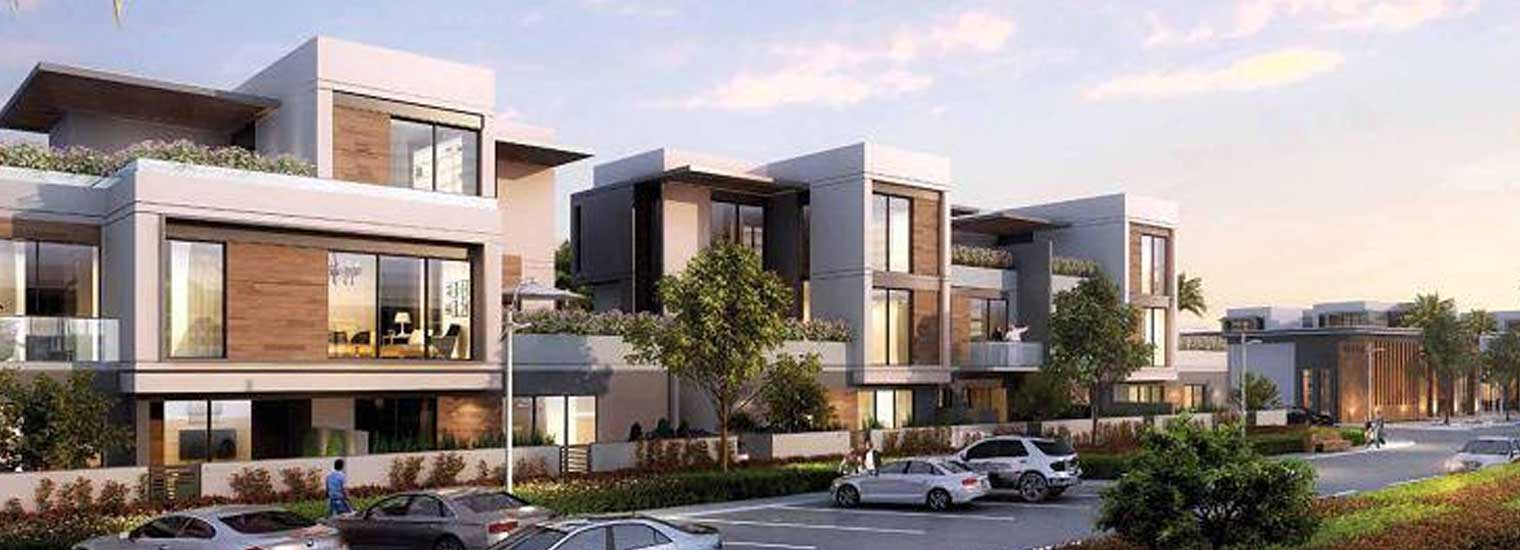
What to Know When Buying a Townhouse: A Homebuyer's Guide
23 Aug 2023

Buying a townhouse can be an attractive option for homebuyers looking for lower maintenance living and a more affordable alternative to single-family detached homes. However, there are some very important factors to extensively research and consider before signing on the dotted line and purchasing a townhouse.
These factors includes time required, cost and many more. This comprehensive guide will provide an in-depth look at everything you need to know before embarking on townhouse ownership.
What to Know Before Buying a Townhouse
To start, it's important to understand exactly what constitutes a townhouse. A townhouse is a single-family attached home that physically shares common walls with neighboring units on either side. Townhouses are part of a larger planned community, or series of communities, called a homeowner's association (HOA).
The layout of a townhouse includes multiple floors, with the main living area on the first floor and bedrooms on the upper floors. A typical townhouse ranges from 1,200 to 2,500 square feet. Townhouses usually have amenities like a small front and/or back yard, a one or two car garage, and a private front and back entrance.
Ownership Structure and Responsibilities When Buying a Townhouse
While you own the interior living space of your individual townhouse unit, you share ownership and responsibility for common areas and elements with your neighbors. This shared ownership includes the actual physical external structure, roof, landscaping, parking areas, recreational facilities like pools or fitness centers, and more.
A homeowner's association (HOA) oversees the management and maintenance of all these shared structural elements and amenities. As a townhouse owner, you must pay monthly or quarterly HOA fees to cover your portion of these ongoing shared costs. Since you only own the interior of your unit, exterior maintenance like roofing, siding, painting, and driveway/walkway paving are handled by the HOA. However, interior repairs, renovations, and upgrades are your sole responsibility and expense as the homeowner.
CC&Rs: Rules and Restrictions When Buying a Townhouse
The HOA establishes covenants, conditions, and restrictions (CC&Rs) that all townhouse residents must comply with as part of the shared community. The CC&Rs outline various rules on aspects like pets, parking, noise, leasing policies, architectural guidelines, and more. It's imperative that you thoroughly read through the detailed CC&R documentation before purchasing a townhouse to ensure you can live with them long-term. Violating the CC&Rs can result in fines levied by the HOA board.
HOAs also often prohibit homeowners from making certain modifications or alterations to their townhouse property without formal approval. If you want to do major renovations, make structural changes, or even modify the exterior landscape or aesthetics of your home, you'll need to gain permission from the HOA first in most cases.
Location Evaluation When Buying a Townhouse
Conduct in-depth research and in-person visits to evaluate the surrounding neighborhood and overall area where the townhouse community is located. Look at factors like typical noise levels, density of traffic, parking availability, crime rates, general safety and walkability, and proximity to parks, shopping, dining, transit, and other local amenities.
Since townhouses share walls with their neighbors, issues with loud noise or disruptive neighbors will impact you more than living in a detached single-family home. Try to meet nearby residents or current owners in the development to get a realistic sense of the overall community environment and dynamic.
Financial Obligations When Buying a Townhouse
Townhouses tend to be less expensive, both upfront and over the long term, than comparable single-family detached homes in the same area. However, they come at a higher cost than equivalently sized condominiums or apartments. In addition to your monthly mortgage payment, factor HOA fees into your regular housing costs. HOA fees can range anywhere from $100 to over $600 per month depending on the number and quality of amenities and services included.
You'll also need to customize your homeowner's insurance policy based on what elements of the property are covered under the HOA's master policy. Be sure to coordinate comprehensive coverage without redundant payments.
Resale Value and Market Potential When Buying a Townhouse
Well-located townhouses generally appreciate in market value over time. However, the potential for value growth and equity is often less substantial compared to detached single-family homes. Curb appeal matters greatly for townhouses since they lack privacy. Upgrading exterior landscaping features, painting, and installing decorative touches can go a long way to boost a townhouse's future resale value.
Research recent sales of comparable townhouse units within the specific community you're considering, as well as other nearby developments, to gauge accurate current market value and project future resale potential.
Conclusion
Buying a townhouse has many unique considerations compared to other home styles. Following this in-depth guidance and doing extensive research before purchasing will ensure you go into townhouse ownership informed and prepared. Weigh the community benefits against the compromises in privacy to find the right townhouse fit for your needs and lifestyle.
Do townhomes have good resale value?
Townhomes do have favorable resale value, contingent on various factors such as their location, prevailing market trends, the condition of the property, and the demand for townhomes in the area. Generally, townhomes offer a valuable middle ground between single-family homes and condos, appealing to a diverse range of potential buyers. The potential for a good resale value is influenced by comprehensive research and a deep understanding of the local real estate market dynamics, which are pivotal in gauging the potential appreciation of the property over time.
What are the advantages of living in a townhouse?
Living in a townhouse can have significant distinctive advantages for example townhouses provide affordability with more space and privacy than condos, yet at a lower cost than single-family homes. Unique ownership includes both unit and land. Communities often feature amenities like pools, gyms, and fostering community. Reduced maintenance suits those balancing homeownership and convenience. Multiple floors and space offer a larger feel within a modest footprint.
What is the difference between a townhouse and a condo?
The major difference between townhouses and condos involves their ownership, maintenance, privacy, and cost. Townhouses offer ownership of unit and land, condos of interior space, with shared areas owned collectively. Maintenance varies: condos share costs, townhouses manage unit and exterior, sometimes jointly. Townhouses afford more privacy with separate entrances and fewer shared walls, unlike condos which tend to be more communal. While condos may be cheaper upfront, townhouses offer more space for the investment, balancing affordability and roominess.
What is the difference between a townhouse and a duplex?
The difference between townhouses and duplexes lies in their architecture, ownership, privacy, and community aspects. Townhouses are connected units in a row with shared walls, while duplexes are standalone buildings with two separate units, often stacked. Townhouses have individual ownership per unit and more privacy due to separate entrances and multiple floors. Duplexes can have single or separate owners, share interior walls, and suit related households. Townhouses often belong to larger communities with shared amenities, promoting community, while duplexes offer a more single-family home feel.



